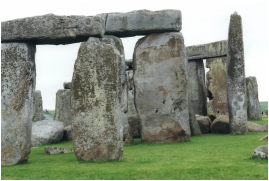 My sister assures me that genealogy is absolutely, supremely, and irredeemably dull. Unless you are doing the research, it's BORING. She doesn't sugar-coat it. Yet even she was willing to admit that great-great uncle Aaron Augustus Chase* was actually kind of inspiring. Bit of background: In 1871, coal miners in Scranton, Pennsylvania were protesting. The local coal companies had cut wages from $1.31 to $0.86 per car-load of coal in late 1870. The miners joined the Miners' and Laborers' Benevolent Association, which called for a strike. That strike subsequently began January 1871. On May 17, 1871, there was a large crowd of strikers (and their family members) protesting the scab laborers who were working the Brigg's shaft in the Scranton neighborhood of Hyde Park. As reported in History of Scranton and its People by Col. Frederick L. Hitchcock, published in 1914. the protesting included "jeers, hootings, vile names and threatening gestures as the men went to and from the mine." (ooh! hurtful hootings!) "Opprobrious epithets" were flung. And then perhaps a stone took to the air, which lead like night follows day, to an escallation of violence. Two strikers, Benjamin Davis and Daniel Jones, were killed by a single shot from the squad of militia hired by Mr. W. W. Scranton, superintendent of the Lackawanna Iron and Coal Company to guard the workers. Enter Aaron Augustus Chase. The editor of the Scranton Times, he called out W. W. Scranton and wrote that the killings of Davis and Jones amounted to murder. He ended up in prison twice, but refused to retract the statement. Yes, he was a Civil War veteran, which probably means he was a hero already, and his later life included a stint as judge and civil servant for the City of Scranton –– the town named for the family of the industrialist whom he called responsible for murder. But moral conviction and action in the interest of downtrodden workers? It warms the cockles of my heart. *Aaaron Augustus was my great-great-great-great-grandfather's cousin, but seriously –– in the interest of a story, I am thinking he's an uncle. PS. The Long Strike of 1871 was not, of course, the end of the labor troubles. The Great Strike of 1877 nearly shut down the country, and in 1891, 19 unarmed immigrant miners were killed in Lattimer, PA. And on and on. As Kurt Vonnegut said, "So it goes."
4 Comments
James DeWolf
9/27/2016 02:58:33 pm
Some folk's perseverance is rewarded with the relative who received a star for valor, but some find that fambly member they're at best pretty dam ambivalent about. That's my peeps! I was a US Senator and honest-to-god patriot, whose personal fleet of ships was larger than the US Navy, so I lent them for the goings-on in 1812. But Sunfish sailor Nat Philbrick hasn't yet tapped out a tome regarding my story because my wealth, though grown legally (mostly), was built immorally. Still, some descendents back in Bristol, RI name their kids Nancy Bradford and Mark Anthony, while others run like hell from my memory. Geneology's a hoot!
Reply
Amy
9/28/2016 01:39:52 pm
Thanks James DeWolf (1764-1837), writing from beyond the grave. What an adventurous life you led, according to the Google!
Reply
love Cracker Jacks
9/29/2016 10:15:40 am
Sure, I raised some heck. My more mild-mannered great great great nephew sailed a zillion Sunfish regattas with Charlie and Rod and Jeff, even though at about six-twelve he was a tad big for the boat !
Reply
Amy
10/3/2016 02:13:33 pm
Just a tad tall...Probably required a helmet for safe tacking. Leave a Reply. |
About the Blog
A lot of ground gets covered on this blog -- from sailboat racing to book suggestions to plain old piffle. FollowTrying to keep track? Follow me on Facebook or Twitter or if you use an aggregator, click the RSS option below.
Old school? Sign up for the newsletter and I'll shoot you a short e-mail when there's something new.
Archives
June 2024
Categories
All
|
 RSS Feed
RSS Feed
